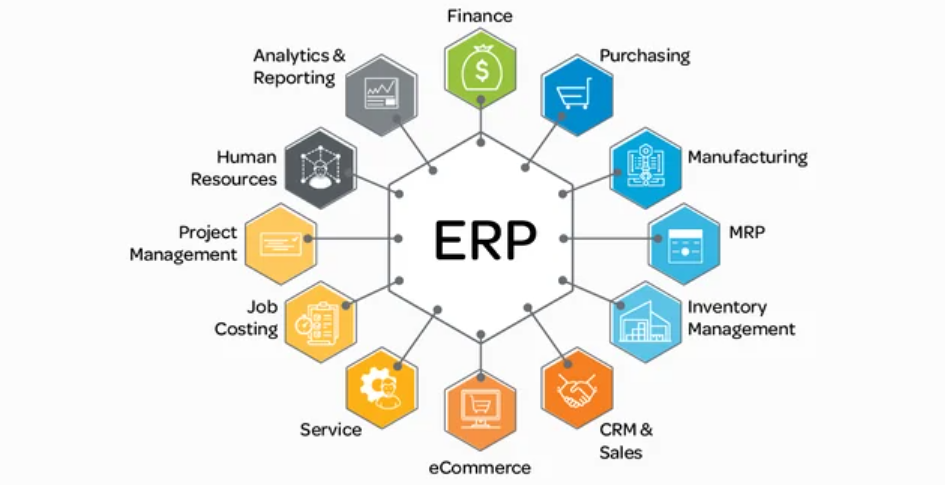Key Takeaways
- Understand the specific needs of your hospitality business.
- Evaluate ERP software based on essential features and scalability.
- Consider user experience, integrations, and support services.
Introduction
The hospitality industry thrives on efficiency, exceptional customer service, and seamless operations. Many businesses turn to Enterprise Resource Planning (ERP) software to achieve these goals. However, with numerous options available in the market, choosing the right ERP software like https://arcticit.com/products/tribal-applications/hospitality-erp-software/for your hospitality business can be overwhelming. This post seeks to streamline the decision-making process and help you reach a well-informed conclusion specific to your own business requirements.
Understand Your Business Needs
It’s critical to comprehend your unique business requirements before dipping into the variety of ERP solutions. Different hospitality businesses, such as hotels, restaurants, and resorts, have varied requirements. For instance, hotels might prioritize reservation management, while restaurants could focus more on inventory and supply chain management. Clearly define your objectives, whether it’s improving guest experiences, streamlining operations, or enhancing reporting capabilities. Knowing what you need will help narrow down the choices.
Essential Features to Look For
1. Reservation Management
An ERP for the hospitality industry should offer robust reservation management capabilities. This feature allows you to manage bookings efficiently, reduce overbooking, and provide guests with a seamless reservation experience. Reservation management systems should include functionalities such as real-time availability updates, automated confirmations, and easy cancellations or modifications.
2. Inventory Management
Effective inventory management is critical for controlling costs and ensuring the availability of necessary supplies. Look for ERP software that provides real-time inventory tracking, automated reorder notifications and comprehensive reporting. An integrated inventory management system helps prevent stockouts and overstock situations, thus optimizing your supply chain operations.
3. Financial Management
Effective financial management is essential to every successful company. Your chosen ERP should include accounting functionalities, such as budgeting, invoicing, and financial reporting, to streamline financial operations and enhance transparency. You may make data-driven decisions by tracking income, expenses, and profitability with the use of effective financial management software.
4. Customer Relationship Management (CRM)
CRM capabilities help you understand your customers better and personalize their experiences. Features like guest history tracking, loyalty programs, and feedback management can significantly boost customer satisfaction. A sophisticated CRM system integrates guest preferences, past interactions, and feedback to create a tailored and delightful guest experience.
Scalability and Flexibility
Your business requirements will evolve over time, and your ERP software should grow with you. Select a solution that is scalable and flexible enough to accommodate future expansions, new locations, and additional functionalities. Cloud-based ERP systems are often recommended for their scalability and ease of access, allowing you to manage operations from anywhere. Scalable ERP systems ensure that as your business grows, the software can handle increased transaction volumes and additional users without compromising performance.
User Experience
To guarantee that the ERP software is used effectively by your employees, it must have an easy-to-use interface. Complicated systems can lead to frustration and errors, which can negatively impact operations. Evaluate the demo versions of the ERP software to see if it offers a user-friendly experience. To ensure a seamless transition, don’t forget to take into account the vendor’s training and support offerings. A well-designed user interface enhances productivity and reduces the learning curve for new users.
Integration Capabilities
Software solutions such as property management systems (PMS), third-party booking platforms, and point-of-sale (POS) systems should be simple to integrate with your ERP system. Integration capabilities reduce errors by guaranteeing data consistency across platforms and eliminating human data entry. Seamless integration allows for streamlined operations and a unified view of business performance across departments.
Vendor Support and Reliability
The reliability of your ERP vendor is as important as the software itself. Investigate the vendor’s reputation, customer reviews, and support services. Reliable vendors offer comprehensive support, including installation, training, and ongoing technical assistance. Establishing a trust-based relationship with your vendor can lead to smoother implementation and efficient problem-solving. Look for suppliers who have a track record of effectively implementing ERP systems in the hospitality industry.
Cost Considerations
Cost is undeniably a significant factor in your decision-making process. While it might be tempting to choose the least expensive option, it’s vital to consider the long-term value of the software. Look at the whole cost of ownership, accounting for setup, upkeep, license, and any other expenses that might arise. Investing in a high-quality, reliable ERP system can yield substantial long-term benefits, outweighing initial cost savings. Consider the return on investment (ROI) by evaluating how the ERP system will improve efficiency, reduce costs, and drive revenue growth.
Conclusion
Choosing the right ERP software for your hospitality business is pivotal to enhancing operational efficiency, improving customer experiences, and driving growth. By understanding your business needs, evaluating essential features, considering scalability, and ensuring seamless integration, you can make an informed decision that aligns with your organizational goals. In order to ensure a successful installation and continued success, don’t forget to give user experience and vendor support top priority. Investing in the right ERP system can provide a competitive edge, streamline operations, and contribute to the long-term success of your hospitality business.

